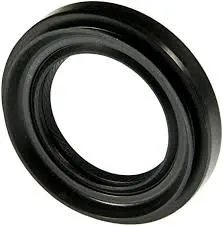10 月 . 22, 2024 07:29 Back to list
Understanding TC Oil Seals and Their Applications in Mechanical Engineering
The Importance of TC Oil Seals in Mechanical Applications
In the realm of mechanical engineering, the performance and longevity of machinery depend significantly on the quality of its components. One such essential component is the TC oil seal, a crucial element that plays a vital role in maintaining the operational efficiency of various machines and vehicles. Understanding the function, design, and applications of TC oil seals can enhance our appreciation for these small yet mighty parts.
What is a TC Oil Seal?
A TC oil seal, also known as a lip seal, is a type of mechanical seal designed to prevent the leakage of fluids such as oil and grease while keeping contaminants out of critical components. It typically features a flexible lip that exerts pressure against a rotating shaft, ensuring a tight seal. The acronym TC stands for Total Contact, indicating that the sealing lip makes complete contact with the shaft surface. This design minimizes the risk of leakage, making TC seals effective in a wide range of applications.
Design Features
The design of TC oil seals is characterized by several key elements
1. Material Composition TC oil seals are commonly made from elastomers such as nitrile rubber (NBR) or fluorocarbon rubber (FKM). These materials are selected for their excellent resistance to oil, temperature, and wear, ensuring durability in harsh environments.
2. Sealing Lip The sealing lip is the heart of a TC oil seal. It is crafted to conform precisely to the shaft, creating an optimal sealing surface. The lip can be single or double, with double lips providing enhanced protection against contaminants.
3. Metal Reinforcement Many TC oil seals incorporate a metal outer casing that provides structural support. This metal casing ensures that the seal maintains its shape and integrity even under high pressure, further enhancing its sealing capabilities.
Applications of TC Oil Seals
TC oil seals find applications across various industries due to their reliability and effectiveness. Some common applications include
1. Automotive Industry In vehicles, TC oil seals are used in engines, transmissions, and differential housings. They prevent engine oil from leaking and keep dirt and moisture from entering, which is vital for the longevity of engine components.
tc oil seal

2. Industrial Machinery In industrial settings, TC seals are used in pumps, gearboxes, and hydraulic systems. They help maintain the integrity of lubricants, ensuring that machinery operates smoothly and efficiently.
3. Agricultural Equipment TC oil seals are also prevalent in agricultural machinery, where they safeguard against the harsh conditions of farming environments. They help protect critical components from dirt, dust, and moisture.
4. Aerospace In aerospace applications, TC oil seals are utilized to maintain the performance of systems by preventing fluid leaks in critical machinery, ensuring safe and reliable operation.
Advantages of Using TC Oil Seals
The advantages of TC oil seals make them a preferred choice in various applications
1. Leak Prevention TC oil seals offer exceptional performance in preventing fluid leakage, which is crucial for maintaining the efficiency of machinery.
2. Contamination Protection By keeping impurities out, TC oil seals protect internal components, reducing wear and prolonging lifespan.
3. Versatility They can be used in high-speed applications and are suitable for a wide range of temperatures and pressures, making them versatile for different environments.
4. Cost-Effectiveness Since TC oil seals help reduce maintenance costs and prevent failures, they contribute to overall operational efficiency, making them a cost-effective investment.
Conclusion
In summary, TC oil seals may be small in size, but their impact on the functionality and durability of machinery is immense. They serve as a vital line of defense against leaks and contamination in various applications, from automotive to industrial settings. The ongoing advancements in materials and design technology continue to enhance the performance of TC oil seals, ensuring they meet the ever-increasing demands of modern engineering. Understanding the significance of these oil seals can help engineers and technicians select the right components for their specific needs, ultimately leading to more efficient and reliable machinery.